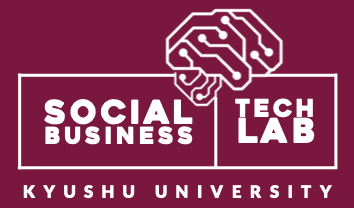
The Genki Campus: Improving Primary Healthcare in Developing Countries through Portable Health Clinics
- Post by: Forhad Hossain
- April 30, 2023
- No Comment
The provision of primary healthcare services in developing countries remains a significant challenge, particularly in low and middle-income countries. According to the World Health Organization (WHO), scaling up primary healthcare interventions across these countries could save 60 million lives and increase average life expectancy by 3.7 years by 2030. The concept of primary healthcare developed during the 1970s as part of the basic needs of social development. WHO and UNICEF elaborated the strategy of primary health care as the means to achieve Health for ALL. To define primary health care WHO-UNICEF mentioned, “Primary Health Care is essential health care based on practical, scientifically sound and socially acceptable methods and technology, made universally accessible to individuals and families in the community through their full participation and at a cost that the community and the country can afford to maintain at every stage of their development in the spirit of self-reliance and self-determination.”
Primary health care helps to increase access to health services for all. It is the foundation of the health system. It addresses the health needs of all people at the community level for integrated care, disease prevention, healthy life practice promotion, and health education. One of the important goals of primary health care is to make sure easy and affordable health services for all community groups.
To overcome the challenges associated with providing primary healthcare services in developing countries, Kyushu University in Japan, in partnership with Grameen Communications in Bangladesh, has developed an advanced healthcare delivery system that is affordable, usable by local healthcare workers, and financially sustainable. The Portable Health Clinic (PHC) system was developed primarily with consideration for the local infrastructure and needs of rural communities, using advanced medical and ICT technologies to make the service systematically efficient.
The PHC system is a remote healthcare system that uses the functions of both eHealth and telemedicine systems. It comprises four major components:
a) Portable Health Clinic Box
b) Healthcare worker
c) GramHealth Server
d) Telemedicine Center
The health worker visits a patient with the PHC box to measure their vital information and uploads the data, along with the patient’s medical history, to an online server using the GramHealth Client Application installed in a smartphone or tablet PC inside the PHC box. The remote doctor then accesses this data and makes a video call to the patient for further verification. Finally, the doctor creates an online prescription and enters it into the system, which can be accessed by the patient or the local pharmacy.

The PHC system has been used in Bangladesh to provide primary healthcare services to various unreached community groups. The system has also been tested in ten other countries to check its usability. Furthermore, Kyushu University and Grameen Communications are now focused on creating more impact in healthcare services and have designed some service packages targeting special communities. One of the service packages is the Genki Campus.
The Genki Campus is an initiative from Japan to provide primary healthcare services in academic institutes in Bangladesh, ensuring the health and well-being of students and staff. In developed countries, they do an annual health check for all, which helps to avoid so many health complexities and unnecessary health expenses. In Japan, school health checkups started in 1900, but after 120 years, many countries, including Bangladesh, do not have a practice like this. Therefore, to make a healthier and brighter generation, Kyushu University and Grameen Communications aim to impose compulsory annual health checkups in schools in an easy and affordable way with the support of technology.
